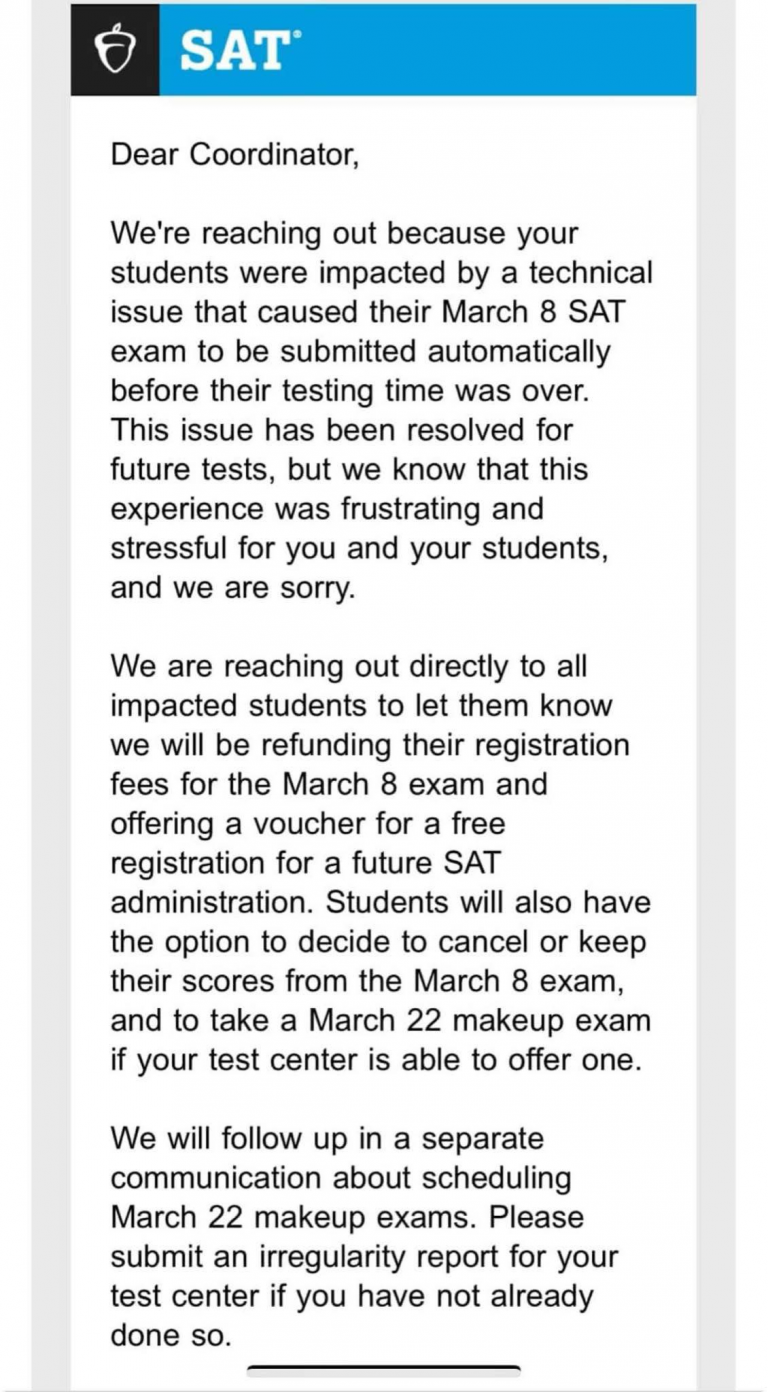We have always preached that knowing how to navigate the college preparation process is essential to saving families time, energy, money, and stress. It is important to have conversations early, not from a place of intensity or fear, but because it empowers families to construct a sensible roadmap and plan ahead.
When it comes to applying for accommodations for the SAT and ACT, planning ahead is essential.
For the purposes of this post, we are going to focus exclusively on the process of applying for accommodations on the SAT and ACT and assume that a student’s educational/psychological testing and history of accommodations are already in place.
Why is it important to figure out accommodations early?
We tell every family that, before they spend a penny or minute on any sort of SAT/ACT prep, they should take a diagnostic test of the SAT and ACT to determine what test is best for them.
For neurotypical students, this process is more straightforward, as they use the standard time limits for each section of the tests.
For students who may qualify for accommodations, you want to figure out their accommodations BEFORE they even take the diagnostic tests.
Why is this so important? Because a student may qualify for accommodations on the SAT but not the ACT. Or the accommodations they qualify for on the ACT may better suit them than the SAT.
Every college looks at the SAT and ACT completely equally. Students only need to take one or the other. Again, figuring out the best test for your student will save everyone a lot of time, energy, money, and stress.
Practice how you play. Why take practice tests or spend money on tutoring without knowing the exact rules of the game for your student?
Think of it this way: if you are trying to figure out if your child may be a good basketball player, you don’t have them try the sport by shooting the ball at a 15-foot hoop.
What kinds of accommodations are available?
Accommodations include, but are not limited to:
- Extra Time (generally 50% additional on each section of the test – “time and a half” – or
- 100% additional time on each section – “double time”)
- The ability to take the test over multiple days
- A computer keyboard for typing on the Writing/Essay section
- A calculator being made available during the science section of the ACT
- A smaller group setting for a more controlled testing environment
- An individual proctor who can read the questions aloud or serve as a scribe
- Larger print to make the questions easier to read
- The ability to start and stop the clock
SAT
First speak with your student’s Services for Students with Disabilities (SSD) coordinator/guidance counselor about applying for accommodations. They can log onto the College Board (the not-for-profit that writes the PSAT, SAT, and AP exams) online system at any time to apply for accommodations. This process generally takes at least 7 weeks, but can take longer if an appeal is necessary.
If a student is approved, those accommodations can be used for all College Board tests.
We recommend that if families have not already done this by the fall of 10th grade (when many students take the PSAT), they apply for accommodations during the winter of 10th grade. It is highly recommended to make sure the student has the accommodations in place for the 10th grade PSAT, because the SAT takes the history of accommodations use into consideration when making accommodations decisions. Therefore, it is always discouraged to take a PSAT or SAT without accommodations that the student may be entitled to, including and especially “just to see” how they might do without them.
ACT
The major difference in applying for accommodations on the ACT is that students need to register for a test in order to apply for accommodations. This is slightly more cumbersome than applying for College Board accommodations, but, unlike the SAT, the ACT guarantees that any accommodations that are made on a 504 or IEP will be honored for the ACT, regardless of history of accommodations use or when a diagnosis was made.
When a student registers for the test, they will be given the option to register with National Extended Time (50% additional on each section of the test) or Special Testing (other accommodations).
Once the student registers, ACT will send a note to the SSD coordinator/guidance counselor for them to send the student’s 504/IEP, educational/psychological testing, and history of accommodations.
We recommend that families apply for accommodations on the ACT by the end of 10th grade, which means they must sign up for, at the latest, the June or July ACT – even though their student has NO intention of taking it.
Once you get your accommodations, you can pay to reschedule the test registration for a later date. And if you are not approved, which is highly unlikely if the student has a 504 or IEP, the good news is that you have more time to appeal and plan ahead.
Our aim here is not to have you waste your money on a test that your children will not take. The goal is to know the rules to the game before your students take their SAT and ACT diagnostic tests so that they can get the most accurate baseline results and choose the test that is truly better for them.
Whether a student does their prep work during the summer before 11th grade, or anytime during junior year, following these steps will allow them to plan ahead and prep efficiently and wisely.
Feel free to reach out anytime at info@myivyexperience.com or 267-888-6489 if you have questions or concerns.


